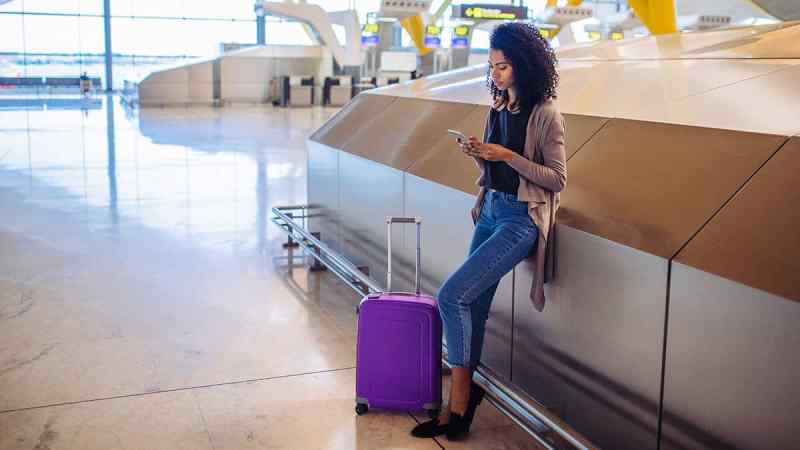Can You Claim Vacations On Your Taxes – All corporate tax clerks and business accountants bank accounts work visas and travel allowance and HR support
If you earn above the personal tax threshold of S$22,000 per year in Singapore, you will pay some form of income tax as found in Singapore. Whether you are a local or foreign employee, or you are self-employed to engage in some form of freelancing, it is important that you familiarize yourself with the personal tax laws set by the Inland Revenue Authority of Singapore (IRAS). . The last thing you want is tax questions from the IRAS at tax season due to ignorance or carelessness.
Can You Claim Vacations On Your Taxes
:max_bytes(150000):strip_icc()/severancepay.asp-final-32f0096580d6489aa78ad87a2dc84e6a.png?strip=all)
In this guide, we provide a comprehensive overview of tax and taxation issues in Singapore that everyone should be aware of.
Timeshare: What It Is, How It Works, And Types Of Ownership
Individual income tax is different for employees and self-employed in Singapore according to the tax rules set by IRAS. It is important to know where you stand. so who are you
Your tax residency status plays an important role in determining whether a Singapore resident is eligible for personal income tax.
Generally, your tax residency is determined by the length of your stay and the number of days you will be working in Singapore.
When calculating your working days in Singapore, weekends and holidays are usually taken into account. Temporary absences from Singapore due to travel such as holidays, vacations or business trips are also covered.
Self Employed Tax Deductions In Canada
Tax exemption for foreign earnings or personal income brought into Singapore on or after 1 January 2007 if not derived from a partnership in Singapore.
You lived or worked in Singapore from 3 May 2021 to 6 November 2021, which is 187 days. You will be tax resident for assessment year 2022.
You have lived or worked in Singapore for a continuous period between 4 December 2019 and 9 June 2020, which is up to 187 days. You will be treated as a tax resident for 2 years. You become tax resident for assessment years 2020 and 2021. That is, 27 and 160 days including 187 days.

You have lived or worked in Singapore for 3 consecutive years even if you were in Singapore for at least 183 days in the first and third year. You will be a tax resident for all 3 years of administrative approval. Assume you worked or lived in Singapore from 4 December 2019 to 9 June 2021. You will be tax resident for assessment years 2020, 2021 and 2022.
Lta Exemption: Submit Tax Saving Proofs To Employer By March 31 Deadline As Claiming Lta In Itr Is A Hassle
Non-taxable persons refer to persons who live and work in Singapore for less than 183 days. A non-resident is required to file income tax by completing Form M and failure to do so will result in late penalties from IRAS. Business owners who operate their businesses remotely in Singapore or frequently travel in and out of the city fall into this category. Often, an easier option is to outsource it to a professional tax preparation service.
Non-residents who work in Singapore for less than 60 days are exempt from employment income tax, which means your temporary work is tax-free. However, if you are a director of a Singapore company, a professional or a general entertainer, you do not fall into this category. If you are absent due to matters interfering with your work in Singapore, resident tax will still apply to you, i.e. all your income including income for services provided outside Singapore tax.
C) Assuming you work and stay in Singapore temporarily for 60 days or less in a year:
Ii) Assuming that you live and work in Singapore for a period of time because of your extensive overseas business travel in connection with your work in Singapore, your income includes services that are wholly attributable to your overseas business trip. is taxable.
Princess Vacation Protection For Peace Of Mind
If you are a tax non-resident who works in Singapore for 61-182 days a year, you are not entitled to income tax. Your investment income will be taxed at the non-resident rate of 15% or the resident development rate, whichever is higher. Note that 24% tax still applies to directors’ fees.
Determining the tax residence status of individuals or companies has important implications. As a rule of thumb, if you are a frequent traveler, you can check your travel dates and plan accordingly. For businesses, obtaining a tax residence will also provide start-up companies with exemptions or other benefits provided under double tax treaties.
At Pilot Asia, we pride ourselves on offering a unique approach to [problems]. Our solution is not only practical but also tailored to meet your specific needs. With our team of experts, you get not only a one-size-fits-all solution but a customized plan designed to deliver real results.

By filling out our form, you are taking the first step towards a better, more affordable solution. The form will ask for some basic information about your situation. This will allow us to better understand your problem and provide a solution that fits your needs like a glove.
Big Tax Deductions (write Offs) For Businesses
Expect to hear from our team within 24 hours of submission. We are committed to providing fast and efficient service, ensuring that your issue is resolved in a timely manner.
The table below provides a quick overview of non-resident tax, the rates you can expect to pay as a tax resident from YA2017:
As you can probably conclude, becoming a tax resident provides significant advantages in lower taxes for many low-income earners. Generally, if your income does not exceed S$320,000 – S$400,000, your local tax residency status can save you a reasonable amount of tax. If you are a frequent traveler, you may want to book the number of days you spend in Singapore.
If you want some running numbers the comparison above is taken from the accommodation prices below.
Day Rule: Definition, How It’s Used For Residency, And Example
Singapore’s tax system offers many deductions and reliefs, which are important for reducing your taxable income and maximizing your tax benefits. Here are some important areas to include:
CPF relief for employees: Contributions to your or your family’s Central Provident Fund (CPF) savings account are tax-deductible. This is an important aspect of tax savings for employers.
Salary deductions: For salary income, you can deduct expenses such as property taxes, mortgage interest, maintenance and utilities. It only includes expenses incurred to generate rental income and during the rental period. Additionally, rental expenses up to 15% of the gross rent can be claimed for residential properties.

Donations: Donations made to authorized bodies of public character (IPCs) are eligible for a 250% tax deduction. This means that for every S$1 funded, S$2.50 can be deducted from your taxable income.
Do I Need To File A Self Assessment Tax Return?
Course Fees: Up to $5,500 per year can be claimed for tuition fees for courses, seminars or conferences to improve professional skills or add professional qualifications.
Life insurance: If your CPF contribution is less than S$5,000, you can claim relief for the life insurance premium paid. This subsidy is especially beneficial for those with low CPF contributions.
Parental Allowance: Foster parents, grandparents or in-laws may qualify you for parental allowance of between S$5,500 and S$14,000 depending on living arrangements and number of dependents.
Tax settlement is the process by which you pay all your taxes as a non-Singaporean employee (eg Singapore PR holders, EP holders, PEP holders, S pass holders), before the employment contract ends or When you decide to work. For another employer, and finally, in cases where you plan to leave Singapore for more than 3 months. It is your employer’s responsibility to make sure you pay all your taxes.
Tax Free Shopping In The Eu: Ultimate Guide To Vat Refund For Tourists Travelling In Europe — Wevat
For example – when you leave your current employer, your employer will notify IRAS in due time to calculate your debt up to the last day of employment. You should settle all outstanding tax obligations before you leave Singapore or move to your new job.
Generally, the employer fills out form IR21 which is sent to IRAS for tax clearance. The employer must stop paying you all amounts to IRAS from the date of resignation (including salary, bonus, overtime pay, etc.).
After submitting form IR21, IRAS will calculate your tax liability based on your income in the year you leave and the year you leave. A tax preparation order will be sent to your employer who will pay the tax payable to IRAS. In case the amount withheld is more than the amount mentioned in the tax settlement order, the employer will release the balance to you.

For foreigners who want to leave the country, remember, you can only leave after paying taxes. If your taxes are not cleared, you will be barred from leaving Singapore and in such a case, you will need an exemption letter.

